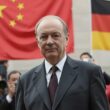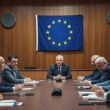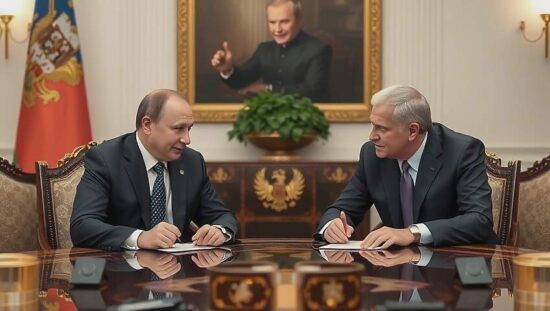On Friday, the talks between Russian President Vladimir Putin and the US Special Envoy, Steve Witkoff, also discussed “aspects of resolving the Ukraine conflict” according to the Kremlin. No further details were provided.
Witkoff visited Russia on Friday and met with Putin in Saint Petersburg. The meeting lasted more than four hours and the content was largely kept secret by both Moscow and Washington.
However, during a press conference earlier on Friday, White House Press Secretary Karoline Leavitt addressed the topic when a reporter asked about the purpose of Witkoff’s visit to Russia.
According to Leavitt, the visit aimed to facilitate direct communication with the Kremlin as part of broader efforts to negotiate a ceasefire and possible peace agreement in the Ukraine conflict.
This week, tensions have risen within the Trump administration after Witkoff reportedly proposed a plan for a ceasefire that would accept Russian control over four eastern Ukrainian regions, which both Moscow and Kiev claim. Reuters reported this on Friday, citing anonymous sources.
During a meeting with President Donald Trump last week, Witkoff argued that recognizing Russian sovereignty over Lugansk, Donetsk, Zaporizhia and Kherson would be the quickest way to end the war, according to the sources of the news agency. Trump’s Special Envoy for Ukraine, General Keith Kellogg, reportedly disagreed and emphasized that Ukraine would not accept complete territorial concessions.
The meeting ended without Trump making a decision, as he has repeatedly announced his intention to achieve a ceasefire by May. Witkoff then traveled to Russia for talks with Putin on Friday.
This development has deepened the divisions within the Trump administration as his staff debate how to resolve the Ukraine conflict, according to Reuters. Witkoff’s approach, which he outlined in an interview with Tucker Carlson in March, has reportedly alarmed both Republican lawmakers and US allies.
“Speak Russian” Witkoff said to Carlson in reference to the eastern regions. “They held referendums in which an overwhelming majority of people expressed a desire to live under Russian rule.”
Several Republicans have reportedly complained to National Security Advisor Mike Waltz and Senator Marco Rubio about Witkoff’s stance and criticized him for repeating Russian rhetoric. An evening dinner with the Russian ambassador, Kirill Dmitriev, who was under US sanctions until recently, also caused additional unease. Although the dinner was initially planned at Witkoff’s residence, it was moved to the White House due to security concerns.
Despite this criticism, Witkoff continues to receive clear support from Trump and some administration officials. Waltz praised Witkoff’s efforts, citing his business background and recent diplomatic activities, including the release of US citizen Marc Fogel by Russia.





